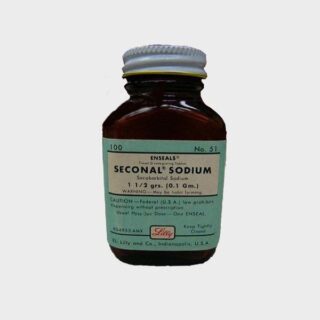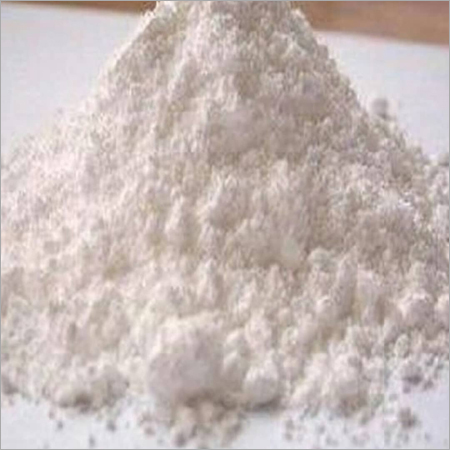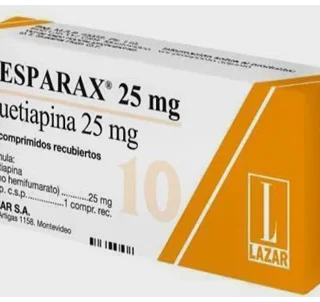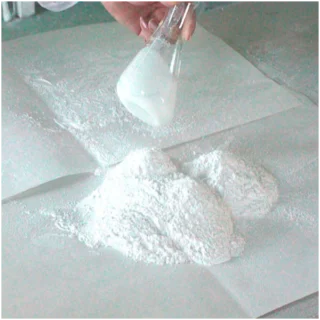Nembutal Powder
300 € – 900 €Price range: 300 € through 900 €
Nembutal Powder is the powdered form of pentobarbital, a barbiturate medication that was historically used to treat various conditions such as insomnia, anxiety, and seizures. It is a central nervous system (CNS) depressant that works by depressing brain activity, leading to sedation, sleep, or unconsciousness at higher doses. While Nembutal is available in several forms, Nembutal powder is typically used in specialized medical settings or in situations that require the rapid preparation of a specific dose for intravenous or oral administration. Buy Nembutal Powder
Buy Nembutal Powder
Buy Nembutal Powder. A reputable pharmacy offering premium medications and pharmaceuticals online is Everyday Chem Supply Shop. Our pharmacy is the best place to purchase Nembutal Powder online if you’re willing to do so from the leading suppliers. Get in touch with us right now to have your needs met quickly. Your medication will be delivered to the place of your choice.
Chemical & Physical Properties:
-
Chemical Name: Pentobarbital Sodium
-
Molecular Formula: C11H18N2NaO3
-
Molecular Weight: 226.27 g/mol
-
Appearance: White or off-white crystalline powder. The powder form of pentobarbital is typically dissolved in a liquid before being administered.
Primary Uses:
Nembutal powder is most commonly used in medical and controlled settings for specific purposes, including:
-
Sedation: Nembutal powder is sometimes used in hospital settings to induce sedation, especially for preoperative patients or those undergoing medical procedures.
-
Euthanasia and Assisted Suicide: In countries where euthanasia or assisted suicide is legal, Nembutal powder is used in lethal injection protocols to induce deep unconsciousness followed by respiratory failure. This is one of the most controversial and sensitive uses of the drug.
-
Seizure Control: Nembutal has historically been used as an anticonvulsant for managing seizures, particularly in emergency or acute situations.
-
Palliative Care: In palliative care settings, Nembutal may be used for end-of-life care to relieve suffering or induce sleep. Buy Nembutal Powder
Mechanism of Action:
Pentobarbital (the active ingredient in Nembutal) works by enhancing the action of GABA (gamma-aminobutyric acid), a neurotransmitter that inhibits neuronal activity in the brain. This results in a depressive effect on the central nervous system, leading to sedation, muscle relaxation, sleep, and, at higher doses, coma or respiratory depression. Because of this action, pentobarbital is effective for managing insomnia and anxiety, but it also carries a high potential for overdose and dependence. Buy Nembutal Powder
Side Effects and Risks:
Despite its effectiveness, Nembutal powder carries significant risks, particularly due to its addictive potential and the possibility of overdose. Common side effects and risks include: Buy Nembutal Powder
-
Addiction and Dependence: Pentobarbital is a barbiturate, a class of drugs known for their potential for abuse and physical dependence.
-
Overdose Risk: Taking too much Nembutal can cause respiratory depression, leading to coma and death. The risk of overdose is even higher when combined with other CNS depressants such as alcohol or benzodiazepines.
-
Cognitive and Motor Impairment: Nembutal can cause memory problems, lack of coordination, and impaired judgment, making it dangerous for activities such as driving.
-
Tolerance and Withdrawal: Over time, users can develop a tolerance to the drug, requiring higher doses to achieve the same effect. Discontinuing Nembutal suddenly can cause withdrawal symptoms, including anxiety, tremors, and seizures.
-
Depression of Breathing: Pentobarbital is a potent respiratory depressant, and at higher doses, it can suppress breathing, leading to life-threatening conditions.
Legal Status:
Nembutal is a controlled substance in many countries due to its high potential for abuse and addiction. In the United States, it is classified as a Schedule II controlled substance, meaning it is available only by prescription but is highly regulated. It is also commonly used in euthanasia and assisted suicide where these practices are legal. Due to its high abuse potential, Nembutal is strictly regulated, and unauthorized use can result in legal penalties.
Alternatives:
Because of the high risks associated with barbiturates like Nembutal, they have largely been replaced by benzodiazepines (such as diazepam and lorazepam) for sedation and anxiolysis. Additionally, anticonvulsants (such as levetiracetam or valproic acid) are often used to manage seizures in place of Nembutal. Buy Nembutal Powder
| Weight | 20 grams, 25 grams, 50 grams, 100 grams |
|---|
Related products
-
Aprobarbitone pills
350 € – 1 280 €Price range: 350 € through 1 280 €Select options This product has multiple variants. The options may be chosen on the product pageAprobarbitone, also known by the trade name Cymbalta in some regions, is a barbiturate medication used to treat severe anxiety, insomnia, and seizure disorders. As a central nervous system depressant, it works by slowing down brain activity, leading to a calming effect on the body and mind. It was historically used for conditions requiring sedation and anxiety management but has largely been replaced by other medications with fewer side effects and lower abuse potential. Aprobarbitone Pills
-
Brallobarbital Pills
348 € – 1 200 €Price range: 348 € through 1 200 €Select options This product has multiple variants. The options may be chosen on the product pageBrallobarbital is a barbiturate medication that was historically used as a sedative or hypnotic to treat conditions such as insomnia, anxiety, and certain seizure disorders. Like other barbiturates, Brallobarbital works by depressing the central nervous system (CNS) to produce calming effects. It is also classified as a CNS depressant, meaning it works to slow down the activity of the brain and body, promoting relaxation, sleep, and a reduction in anxiety.
-
JWH-250
409 € – 4 016 €Price range: 409 € through 4 016 €Select options This product has multiple variants. The options may be chosen on the product pageJWH-250 is a synthetic cannabinoid belonging to the naphthoylindole class of compounds. It is a potent agonist at CB1 and CB2 receptors, mimicking the effects of tetrahydrocannabinol (THC), the primary psychoactive compound in cannabis. It was originally developed by John W. Huffman, a chemist who synthesized a wide variety of cannabinoids for research purposes to understand the effects of cannabinoid receptors. Like other synthetic cannabinoids, JWH-250 is often found in “Spice” or “K2” products, which are marketed as legal alternatives to cannabis. However it is much more potent than THC, making it more likely to cause adverse effects and health risks.
-
Klonopin (Clonazepam)
400 € – 1 200 €Price range: 400 € through 1 200 €Select options This product has multiple variants. The options may be chosen on the product pageKlonopin is the brand name for the medication Clonazepam, which is a benzodiazepine used primarily to treat seizure disorders and anxiety disorders. It works by calming the brain and nerves, making it an effective treatment for conditions like panic attacks, generalised anxiety disorder (GAD), and seizures.
Clonazepam is typically prescribed for short-term use due to its potential for dependence and misuse.
Top rated products
-
 3-Fluorophenmetrazine
260 € – 6 500 €Price range: 260 € through 6 500 €
3-Fluorophenmetrazine
260 € – 6 500 €Price range: 260 € through 6 500 €
-
 Methylone
350 € – 1 300 €Price range: 350 € through 1 300 €
Methylone
350 € – 1 300 €Price range: 350 € through 1 300 €
-
 Cherry Gorilla Glue
Cherry Gorilla Glue
-
 Alpha-PVP
310 € – 4 500 €Price range: 310 € through 4 500 €
Alpha-PVP
310 € – 4 500 €Price range: 310 € through 4 500 €
-
 Seconal Sodium
370 € – 1 250 €Price range: 370 € through 1 250 €
Seconal Sodium
370 € – 1 250 €Price range: 370 € through 1 250 €






Reviews
There are no reviews yet.